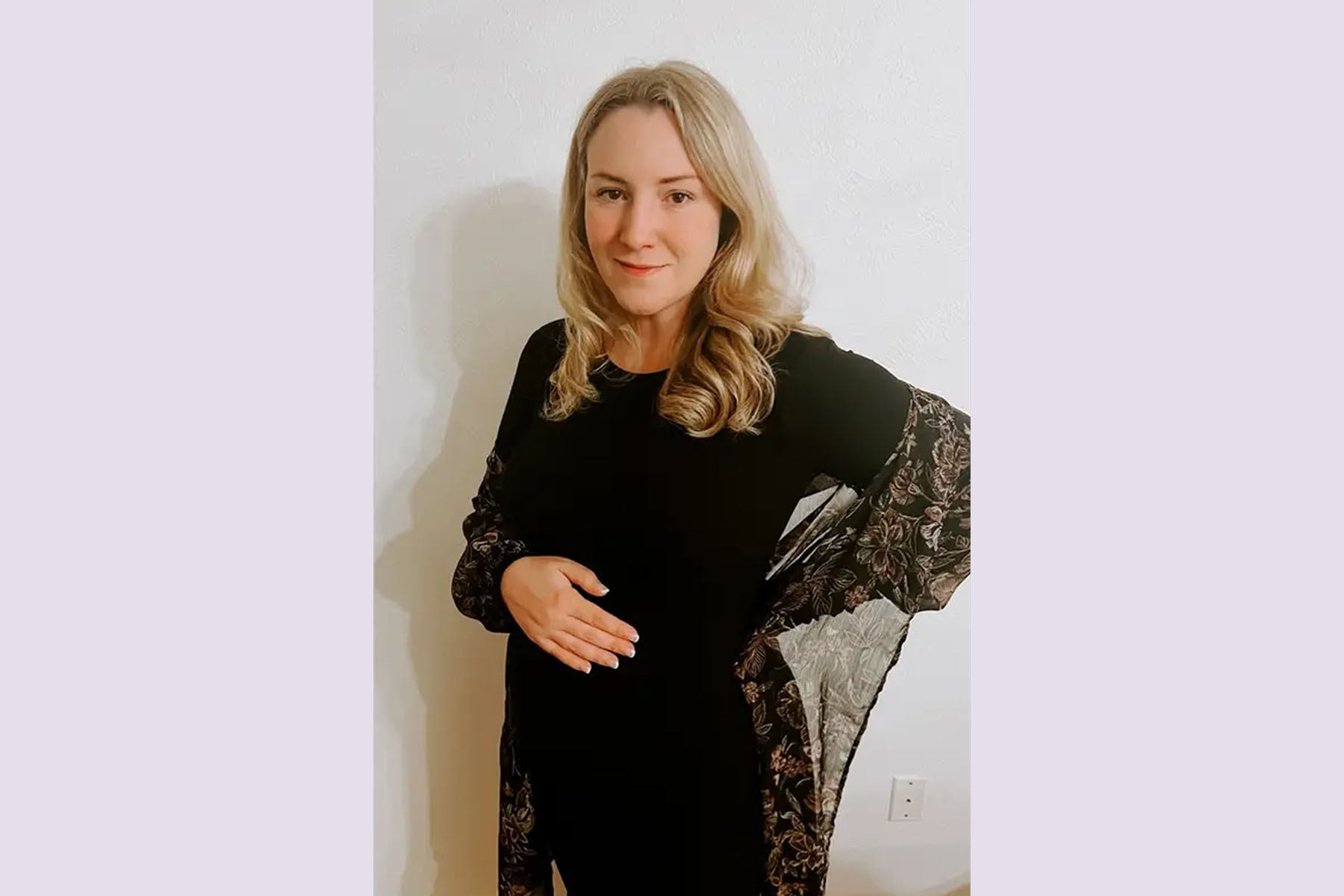For the first time in at least 50 years, a judge has intervened to allow an adult woman to terminate her pregnancy.
When Travis County District Judge Maya Guerra Gamble handed down the temporary restraining order Thursday, Kate Cox, 31, of Dallas burst into tears. Cox and her husband desperately wanted to have this baby, but her doctors said continuing the nonviable pregnancy posed a risk to her health and future fertility, according to a historic lawsuit filed Tuesday.
“The idea that Ms. Cox wants desperately to be a parent, and this law might actually cause her to lose that ability is shocking and would be a genuine miscarriage of justice,” Gamble said.
Texas Attorney General Ken Paxton responded Thursday afternoon in a letter addressed to three hospitals — Houston Methodist Hospital, The Women’s Hospital of Texas in Houston, and Texans Children’s Hospital in Houston — saying the temporary order would “not insulate hospitals, doctors, or anyone else, from civil and criminal liability for violating Texas’ abortion laws.”
-
Read Next:
The Texas Office of the Attorney General, which challenged Cox’s claims at Thursday’s hearing, may try to ask a higher court to intervene but had not as of Thursday afternoon.
At 20 weeks pregnant, Cox learned her fetus had full trisomy 18, a chromosomal abnormality that is almost always fatal before birth or soon after. Before the overturn of Roe v. Wade, Texas law allowed doctors to terminate pregnancies due to lethal fetal anomalies at any point during the pregnancy. But now, Cox’s doctors said their hands were tied by Texas’ abortion laws, which prohibit abortion except to save the life of the pregnant patient.
A week after she first received the diagnosis, Cox and her husband, represented by the Center for Reproductive Rights, filed a lawsuit asking a judge to grant a temporary restraining order, allowing them to terminate this pregnancy.
“It is not a matter of if I will have to say goodbye to my baby, but when,” Cox said in a statement. “I’m trying to do what is best for my baby and myself, but the state of Texas is making us both suffer.”
At the hearing, Jonathan Stone, a lawyer for the Texas Office of the Attorney General, argued that Cox “does not meet all of the elements” to qualify for a medical exemption from the abortion bans, at least based on what was filed by her lawyers. Granting a temporary restraining order would require “changing the medical exemption in Texas and then saying that the plaintiffs meet this changed newly rewritten standard,” Stone said.
Stone also argued that the temporary restraining order would have permanent consequences, in the form of an abortion.
“The harm to Ms. Cox’s life, health and fertility are very much also permanent and cannot be undone,” countered Molly Duane, senior counsel for the Center for Reproductive Rights. Duane said Cox’s condition was “rapidly deteriorating every day,” and since the lawsuit was filed on Tuesday, she had already made a trip to the emergency room due to medical complications from her pregnancy. She’s gone to the ER four times in the last month, Duane said.
In a filing late last night, the state tried to argue that Cox was actually “currently residing in sunny Saint Lucie County, Florida,” where, “ironically and particularly relevant to this cause of action,” she would qualify for an abortion under that state’s medical exemptions. Duane told the judge Cox had not left Dallas in months: she had just used an online notary service, based in Florida, to sign the legal filings.
After a 45-minute Zoom hearing Thursday, Gamble ruled that Cox should be allowed to terminate the pregnancy, and that Dr. Damla Karsan, a Houston OB/GYN, should be protected from civil and criminal penalties if she performs the procedure.
In his letter to hospitals, which also served as a response to the hearing, Paxton said Dr. Karsan “failed to follow” hospital procedures for “determining whether Ms. Cox qualifies for the medical exception to Texas abortion laws.” He also said both the temporary restraining order and the lawsuit failed to “establish that Ms. Cox qualifies for the medical exception to Texas’ abortion laws.”
It’s uncertain whether this is true and hospitals definitely have some legal risk, but Paxton is “overstating his case,” said Charles “Rocky” Rhodes, a law professor at South Texas College of Law.
“This is an unresolved issue,” Rhodes said. “There’s just too many uncertainties for me to say who’s going to ‘win,’ and who’s going to ‘lose.’ I can’t say the hospitals have a 100% guarantee that there won’t be any kind of retroactive liability against them.”
Another district judge, Jessica Mangrum, previously ruled that the state’s abortion bans should not apply to people with complicated pregnancies, including those facing lethal fetal diagnoses. The state appealed that ruling, putting it on hold; the case is before the Texas Supreme Court.
The state cannot directly appeal Thursday’s order, since it is a temporary restraining order. Instead, the Office of the Attorney General would have to file a writ of mandamus petition, asking a higher court to take the extraordinary measure of overturning the emergency order.
“For mandamus relief, you’re supposed to go to the Court of Appeals first, and then to the Texas Supreme Court,” Rhodes said. “But the Texas Supreme Court has recognized a somewhat flexible standard, that if there’s not enough time, you can go straight to them.”
Joanna Grossman, a law professor at Southern Methodist University’s Dedman School of Law, said she was surprised Paxton didn’t immediately try to kick the order up to the Texas Supreme Court because he often does appeal orders related to abortion. At the same time, she said it made sense to not have it in front of the court at the same time as the Zurawski v. Texas case, the lawsuit filed earlier this year in which 20 women and two doctors are challenging Texas’ abortion laws with regards to complicated pregnancies.
“This case provides a good template [for other women] in both the idea but also the documents. If the TRO stands, we have a model for what can work. Then, that’s easy to scale up to give it to lawyers in different counties,” Grossman said.
“Unless he [Paxton] files a writ and the Texas Supreme Court says something broad that would make this not work again,” she added, “I expect we would see all kinds of lawsuits like this.”
Texas Right to Life, an anti-abortion advocacy group, condemned the lawsuit as a gateway to allowing abortions for any reason in Texas.
“Every child is uniquely precious and should continue to be protected in law no matter how long or short the baby’s life may be,” the group said in a statement. “The compassionate approach to these heartbreaking diagnoses is perinatal palliative care, which honors, rather than ends, the child’s life.”
Since the state banned nearly all abortions after the overturn of Roe v. Wade in June 2022, more and more women have come forward with stories of much-wanted pregnancies gone awry, and the ways the state’s abortion ban worsened their situation.
In October, The Texas Tribune documented the experiences of an East Texas woman who was forced to carry a nonviable pregnancy to term. Her twin sons, born conjoined with severe malformations, died just hours after they were born.
This article originally appeared in texastribune.org.







